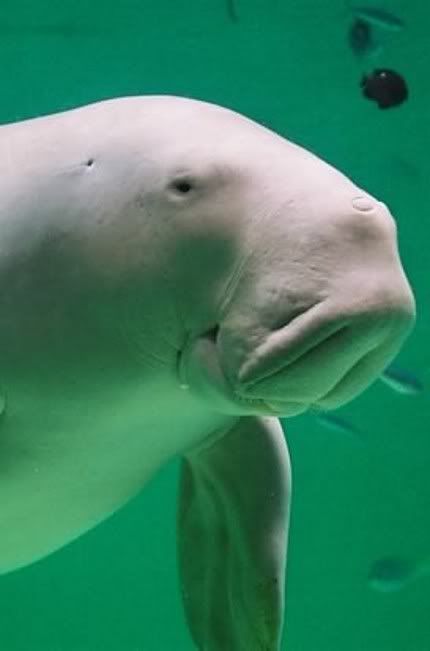Also posted at Truth & Progress
(Okinawa dugong, photo ©Greenpeace Japan)
Where better to build an air base than directly on top of a coral reef and its associated sea grass beds, home of the last 50 dugong in Okinawa and in Japan? Okinawans have been fighting this for years now, and still it proceeds.
Two things are happening in September of great import to the future Of Camp Schwab, it’s adjacent marine habitat, and the Okinawa dugong.
Item 1 is that Japan is conducting an Environmental Impact Assessment. According to Greenpeace:
Throughout September, the Environmental Impact Assessment (EIA) for the proposed airbase site is open for public comment. We’re using this opportunity to let the Japanese government know what the people of the world think – by delivering a petition of thousands of names to the environment and defence ministries, and calling on the government to establish a marine reserve in the area.
As the main remaining site where dugongs are sighted in Okinawa, the area is the obvious choice for a marine sanctuary for the dugong, something the UNEP has been calling on Japan to establish since 2002.
If you wish to add your voice to that of the local opposition, click the logo 
Just last month, the Japanese Environment Ministry added the dugong to its list of critically endangered species. According to Asahi Shimbun,
The list is used in assessing the impact of development and deciding environmental protection moves.
That sounds reasonable. But according to a ministry official quoted by name in Stars and Stripes, the listing effectively means nothing at all.
A Ministry of the Environment spokeswoman said placing the dugongs, or saltwater manatees, on the ministry’s Red List – the most-endangered category – does not mean there is any plan to protect them.
“We decided to include the dugong in our list because it is a sea mammal largely affected by the coastal land environment, with their feeding ground being close to shore,” said Harumi Nakajima, a spokeswoman for the ministry’s Wildlife Department.
She said the purpose of the listing, added Friday, was to warn the public that dugongs are in danger, but there are no plans to place any restrictions on dugong feeding grounds.
~~~~~
Fewer than 50 dugongs are believed to visit Okinawa waters, Nakajima said. She declined to comment on the base project, calling it a “Defense Ministry matter.”
An unnamed spokesman for the Defense Facilities Agency Administration agreed.

So it is an empty gesture? The article is odd by the way, describing the idea of dugong feeding on the grass beds in question as an environmentalist “claim,” when in fact the animals have been filmed numerous times.
Item 2: We learn in the same S&S article that there is to be a hearing on September 17 in the ongoing case of Dugong v Rumsfeld, first filed in 2003.
Original complaint, Dugong v Rumsfeld (10-page pdf)
What is interesting about the suit is that it was brought under the National Historic Preservation Act, claiming that a US federal undertaking is proceeding without the proper regard for cultural preservation that the act requires, even outside the US. The dugong is a figure in Okinawan creation mythology and folklore.
A move for dismissal on several grounds has already been denied (31-page pdf).
Among the disallowed was the assertion that this was not a federal undertaking, but the doing of Japan. Judge Patel wasn’t buying.

8 comments
Skip to comment form
Author
Judge Patel has had quite a career.
Author
that the decline of the dugong in Japan is irreversible in any case, thanks to the loss of sea grass beds and pollution. Given how large it looms in popular imagination, there must once have been many, but the decline has been long.
In any case, this is the extreme northern edge of their range. And while the loss of the genetically distinct Okinawan population is unfortunate from several points of view, the species at large is thriving, for now, in northern Australian waters.
I came home with back pain and a bad foot last night. And my tinnitus had been at Wall of Sound levels.
I’m fascinated by all manner of marine mammals. That there is so much disregard for them from most of the members of my species.
thank you.